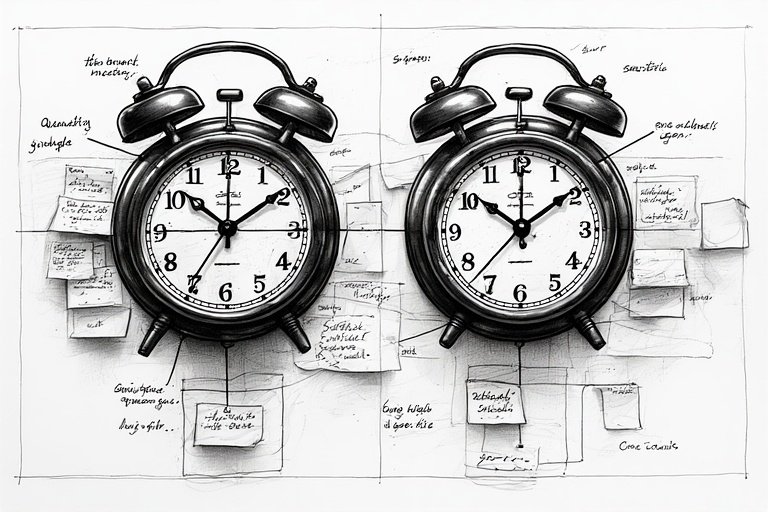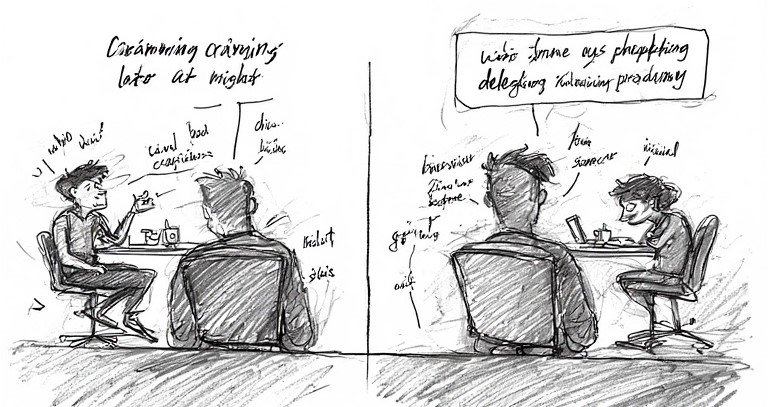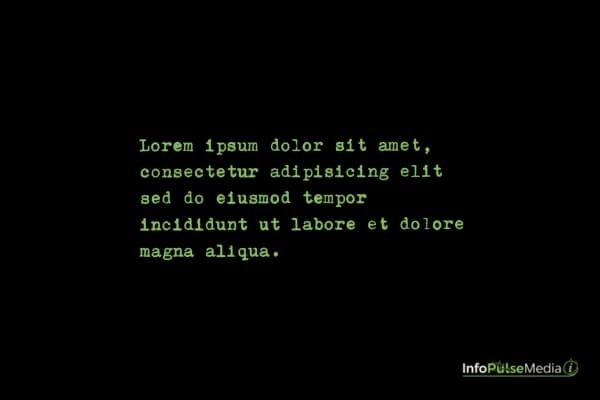There is a stubborn truth hiding in most productivity advice: doing more stuff doesn’t mean you’re actually getting more done. It usually means you’re scattered, tired, and losing the small satisfactions that keep people going. The overworked developer who loved a 70 hour sprint until the tank ran dry, the PM who slowly stopped enjoying the ride, and jack who juggled everything until he nearly broke they all end up at the same place: volume without recovery creates burnout.
Start with the question that changes everything: what one thing, if I did it well, would make the rest of my life better?
Most people answer that question distractedly then sign up for five side projects and 12 meeting cadences.
The paradox is simple: pick fewer things and give them real attention, and you’ll get better results, more satisfaction, and more energy afterward.
Why doing less works
When you focus, you get into deeper work and solve the right problems. You make fewer mistakes. You feel competent. That feeling is what sustains you not a long spreadsheet of tasks checked off. A few concrete ways this plays out:
- Prioritizing properly means asking: If this were the only task I finished today, would I be satisfied?
- Real constraints (shorter work windows, fixed family time, a scheduled date night) force you to be ruthless and productive in the hours you do work, instead of letting work expand to fill all the time.
- Stepping away helps. The brain solves differently when it isn’t grinding on the same problem all the time. Walks, sleep, and non-work hobbies are not escapes they are fuel.
Quality hours > quantity of hours
You can work fewer hours and still be exhausted that’s because what matters is the mix of soul-filling vs soul-sucking hours. If most of your time is draining, it doesn’t matter whether it’s 20 or 70 hours a week. The useful move is not automatically to shave off hours; it’s to change what happens during them.

useful exercise you may considre: review last week’s calendar. Label each hour as either energizing or draining. If draining wins, you don’t need a shorter week you need a better one.
some people can sustain extreme hours for short seasons. The difference between a season and a lifestyle is planning and recovery afterward
keep in mind:
| Do less | Do more |
|---|---|
| Endless shallow tasks | One meaningful, hard task per day |
| 24/7 reactive availability | Protected focus blocks and off-hours |
| Juggling many half-finished projects | Finishing one project, then starting another |
Practical habits
You’ve seen the usual lists. Here are the things people who survive and enjoy long careers actually do, mixed and adapted from the voices you sent me:
–Sleep matters. Not an optional upgrade. Six to eight hours, consistent schedule, dark cool room, no constant work notifications.
-Move every day. Even walks that break up screen time change your brain chemistry and resilience.
-Boundaries are literal: delete email apps from your phone, turn off Slack after hours, use an auto-reply for non-urgent messages. People adapt you’ll be surprised how quickly.
-Finish things. Small wins compound. A culture that finishes projects protects sanity and morale.
-Treat recovery like a non negotiable appointment like book a short break every few months, set aside a 3 hour do nothing window each week, and give yourself one whole day a month with no todo list.
-Protect your energy by mixing things up: don’t spend the whole day on one type of work pair a creative stretch with some admin, chat with a person, or take a short walk so one part of your brain doesn’t get fried.
try today:
- Give 80% effort while keeping 20% of the day for life. That leftover time is not laziness its for you and the next day edge.
- Plan a last thing marker that mean the one final action, that means your workday is over? Do that, then close the laptop.
Why saying just manage time misses the point
Burnout often comes from mismatch? your job asks one thing, your head wants another. Product managers get tired because the job requires constant influence and fragmented attention, not because they lack discipline. Developers burn out when creative flow is replaced by endless maintenance. If your role structurally demands endless output with unclear impact, the fix isn’t another habit tracker it’s a conversation about scope, recognition, and control. Say no. Ask for hiring help. Push for clearer outcomes. If the culture won’t change, have an exit plan or a pivot.
I want also to explain when reducing hours makes things worse? cutting hours without changing workload often backfires. You’ll cram, feel guilty, and still have the same mental load. The alternative is to change the composition of the hours focus on what energizes you, delegate the rest, and build immovable personal rituals that say I am off. The goal is not fewer hours for the sake of fewer hours; it’s fewer meaningful stressors and more recovery that actually restores you.

-The developer who loved their 70-hour sprint and then couldn’t recover even after a month off the fix there was variety, better nutrition, and reframing the side project with milestones and recovery weeks.
-The PM burned slowly by default their escape was protecting meeting-free days, changing how they scoped projects, and interviewing users in person sometimes to reconnect with impact.
-The jack of the first story learned to ask tough priority questions and to give himself permission to be 80% and that 20% saved him from ruin.
From my own experience
I have tried to juggle too many things passion projects, habit experiments, and a day job. For a while it felt like being productive, until I realized I would stopped finishing anything well. The turning point for me was twofold: choosing one major creative focus and putting a literal end of day routine on the calendar (no screens, a short walk, a notebook for tomorrow’s big task).
Not perfect, and I still slip. But protecting those two anchors makes my weeks feel longer, not shorter because they have shape.
FAQ
Q: Will doing less hurt my career?
A: Not if you do the right less. Doing less, will get you higher impact things tends to get noticed more than a long list of half-done tasks. learn to say no without guilt.
Q: What if I cant reduce workload because of life?
A: Then make the hours you have better. Protect small rituals sleep, a daily walk, one focus block and schedule micro-recovery sessions. Plan for seasons: intense bursts can be sustainable if they’re clearly bounded and followed by recovery.
There’s no one perfect formula.
The useful parts of the advice you shared are not about rules; they’re about patterns: protect your recovery, pick fewer meaningful things, finish what matters, and build real boundaries.
Do less of the noise. Do more of the work that makes you feel capable and alive. Burnout is the sign your system is out of balance treat it like that, and you’ll be able to keep doing valuable work for the long run, not just for a sprint.




